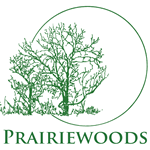The following is written by a perpetually novice wisdom seeker with early onset overly active mind syndrome, ever and always a student with several wonderful teachers and countless others.
The importance of community seems to be especially relevant today. How is it defined and what has it meant, means and will it mean in our lives? Our tribes, teams and groups seemed so strong and well set in the before time, before this period of continual transition and transformation. It has been humbling and disconcerting as what we believed to be the rock-solid foundational parts of our lives have been shaken to the core. A time that has required us to redefine and redefine and redefine ourselves, and for example, the common unity in the “Communities of We” to which we believe we belong.
I have found that there are several “Communities of We” in my life, and some have become all that more obvious to me. These are the communities that I may have taken for granted before the pandemic and now appreciate all the more. Or, they are communities that the pandemic has drawn me to and nurtured. And those that I hope to re-establish a connection with now that I know they are missing. For me, these communities are places where you are accepted fully and where you are able to explore where you are and also where you are going. This is how I’ve come to define their common unity for me. We don’t always agree in these communities and don’t have to, but we are able to just be there, in place, and in union together over and over again. I am truly grateful that I am part of these communities.
There is also, I believe, through some heartfelt searching, an increasing awareness of a greater societal “Community of We” to which many are feeling some responsibility. This appears, with great hope, to be occurring on a global scale, and I have to wonder whether the honest and open discussions, along with the generalized acceptance of others early on in our common struggle with the pandemic, might have evolved into a better understanding of this greater common unity. That this feeling or knowing has seeped into the social sub-conscience. Recognized or not, something larger than what was or may remain. During a recent livestream, the Dalai Lama mentioned the oneness of humanity. Perhaps, just perhaps, we are all privileged to be here to see the bursting forth of an understanding in our intrinsic and all-encompassing belonging to the “Community of Humanity” or “World of We.” A common unity that embraces and envelopes Mother Earth and all it contains. At the same time, however, membership in this community is unknown, undefinable, and incomparable as all are one within this relative common unity. Something that in its creation is in actuality leading to the destruction of its need to be defined. But what a glorious destruction.
Recent events that have been occurring or have occurred in combination or through an unseen hand of coordination have possibly opened this door for a greater expanse of compassion to be unleashed to the oneness. While this situation has been forced upon them, it may have offered a glimpse of this “World of We.” A Robert Johnson crossroads dilemma, perhaps, has been reached or may soon come for many that could result in a slipping back into the reestablishment of our habitual definition of community as “us” and “them” or “it.” A definition fed by decades of illusionary support and planetary sustenance. Or it could lead onto an entirely different path. A path that is unknown and feels difficult and scary, but when done as a community may result in worldwide rewards. Like a flock of birds, can we turn in mass in the direction of the “World of We”? Let’s take flight and gather in our common unity, hold on tightly, and lean into it time and time again.
The questions for all of us remain of course. Thomas Merton said, “I think a man is known better by his questions than by his answers,” in his book Conjectures of a Guilty Bystander. And during this time, it seems right to ask questions related to our communities or common unity. For example: Can we identify them in our lives and define what draws us to them? And why? Can we bring those characteristics into our being, wherever we are, and whatever we are doing, and help to establish or grow them? Can or do the existence of these communities serve something larger (the “World of We”)? What would be the result if we all did this? Perhaps it’s time to find out.
—Keith Knapp, friend of Prairiewoods


